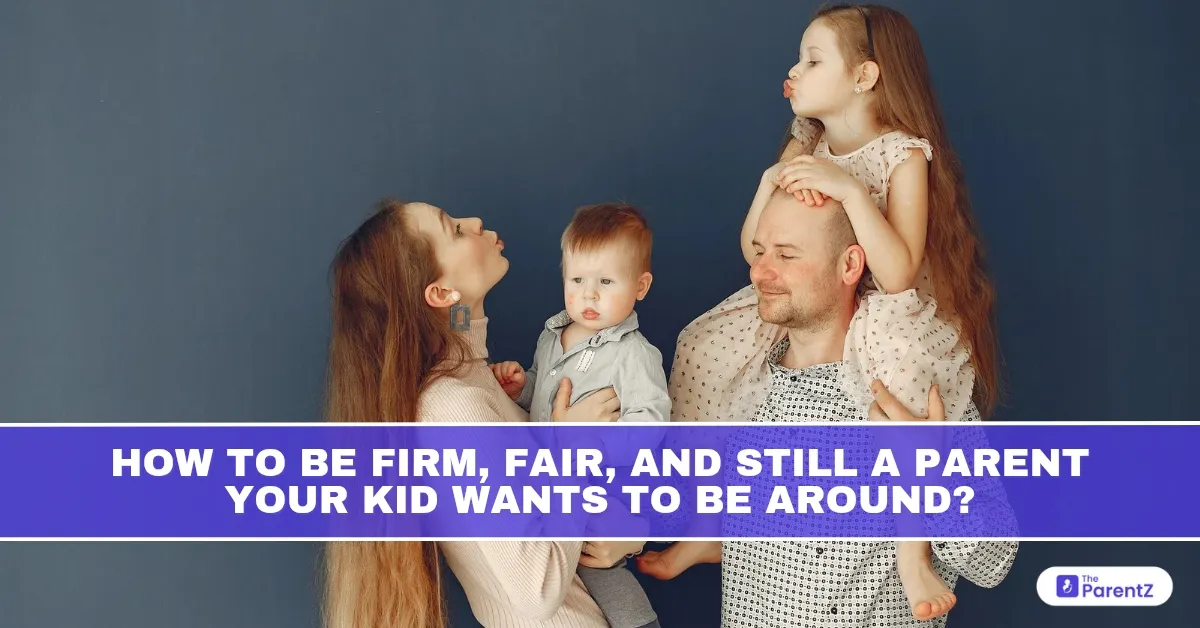Remember that moment when you caught yourself sounding exactly like your own parents—maybe saying something you once rolled your eyes at—and wondered, "When did I become this person?" We've all been there. That internal tug-of-war between setting necessary boundaries and not becoming the parent your kid avoids at all costs.
Let's be honest: parenting is messy. One minute you're their hero, the next you're the villain who won't let them have ice cream for dinner. And in between handling homework, monitoring screen time, and making sure they don't grow up to be rude or selfish, you're trying to maintain an actual relationship with this small human who has their own thoughts, feelings, and growing sense of independence.
We’re not going to talk about perfect solutions (they don't exist), but rather a roadmap for handling the challenging terrain between being the authority figure your child needs and the parent they actually want to talk to, hang out with, and trust with their authentic selves—both now and in the years to come.
Understanding Firmness vs. Connection
Firm parenting means setting clear, consistent boundaries that help children feel safe and know what’s expected of them. When kids know the rules won’t suddenly change, they feel more confident and secure. But being firm isn’t just about saying “no” or enforcing rules; it’s about doing so with kindness and respect. This is where many parents cross the line: they become strict or controlling without connecting emotionally with their children.
The key difference is that firm parents combine warmth and responsiveness with clear limits. This balance helps children develop self-discipline and emotional regulation because they feel loved and understood, not just controlled. When we forget this, our kids may obey out of fear or resentment, but they won’t want to be around us.
When Firm Becomes Too Firm
Many parents cross the line without realizing it. Here are warning signs that indicate veering into territory that pushes kids away:
Always lecturing or turning every conversation into a teaching moment: Kids tune out after about 30 seconds of a lecture. They're not mini-adults with fully developed attention spans and emotional regulation skills. The constant stream of "you should" and "you need to" becomes white noise, and the important messages get lost.
Turning every conversation into a teaching moment: "So what did you learn from that?" becomes exhausting when it follows EVERY story a child shares. Sometimes kids just want to tell a funny story without extracting a moral lesson from it.
Constantly being on your phone or distracted: The message this sends is loud and clear: "Whatever is on this screen is more important than you." Children internalize this disconnect, eventually stopping their attempts to engage when they feel they're competing with a device.
Always angry or enraged: If a parent's default setting is irritation or exploding over small infractions, children will start avoiding interactions altogether. They learn to hide things or lie simply to avoid triggering that anger.
Pointing out flaws instead of encouraging strengths: Constant criticism, even when framed as "helping you improve," teaches children they're never quite good enough. The child who hears more corrections than compliments eventually stops trying to please.
Never saying you're sorry: This one's huge. When adults mess up and refuse to own it, they teach kids that power means never having to acknowledge mistakes. This damages trust and models poor conflict resolution.
Being ugly to their other parent: Children are half of each parent. When one parent constantly criticizes, belittles, or fights with the other, children often feel those attacks are partially directed at them too.
Hiding grief: Pretending everything is fine when it clearly isn't confuses children and prevents them from developing emotional intelligence. They need to see that sadness is normal and learn healthy ways to express it.
Not dealing with your anxiety: Unmanaged parental anxiety often transfers to children. They absorb the tension without understanding its source, creating their own anxieties or developing coping mechanisms to handle a parent's emotional state.
Living vicariously through your child’s achievements: When children feel like their only value is in fulfilling a parent's unfulfilled dreams, through sports, academics, or activities, the relationship becomes about performance rather than connection.
Lying or breaking promises: Children have remarkable radars for dishonesty. Even small untruths erode trust and teach them that deception is acceptable.
Using force instead of relationship: Threats, intimidation, and physical punishment might get short-term compliance, but they erode trust and connection over time. Children obey out of fear rather than respect and understanding.
Seeing Things from Your Child’s Perspective
One of our biggest mistakes as parents is expecting our children to have the same maturity and understanding as adults. Kids are still learning how to manage emotions, think critically, and behave socially. Expecting them to “just get it” is unrealistic and unfair. Your 8-year-old isn't being deliberately difficult when they struggle to control their emotions – their prefrontal cortex (the brain's "reasoning center") is literally still under construction.
To truly connect, we need to get down to their child’s level, mentally and emotionally. This means:
- Using simple, positive language instead of harsh commands
- Explaining the reasons behind rules in ways kids can understand
- Listening actively to their feelings and opinions without judgment
- Being patient when they make mistakes or test limits
- Offering choices to foster independence and cooperation
When kids feel heard and respected, they are more likely to cooperate and want to spend time with you.
How to Be Firm, Fair, and Likable?
So, how do we stay firm on important boundaries without becoming someone our kids want to avoid? Here are some approaches that work:
- Connect before you correct: Take a moment to acknowledge feelings before addressing behavior: "I can see you're really upset right now. Once you're calm, we need to talk about what happened."
- Be brief and specific with limits: "Please put your dish in the sink when you're done" works better than a five-minute speech about responsibility.
- Choose your battles wisely: Ask yourself, "Will this matter in five hours?" If not, consider letting it go.
- Show your humanity: Kids need to see that adults have emotions too, but also know how to handle them. "I'm feeling frustrated right now, so I'm going to take a few deep breaths before we continue."
- Apologize when you mess up: "I'm sorry I yelled earlier. You deserved to be spoken to respectfully, even though I was upset about what happened."
- Create regular connection time: Even 10 minutes of undivided attention daily builds relationship credits you can draw on during tough moments.
Conclusion
At the end of the day, your kids want to be around a parent who is firm but fair, loving but consistent, and above all, likable. If you’re always angry, lecturing, or distant, they’ll avoid you. But if you balance boundaries with warmth and respect, you create a home where your child feels safe, valued, and eager to connect.
Parenting is a journey of learning and growth for both you and your child. By keeping their perspective in mind and choosing connection alongside firmness, you build a relationship that lasts a lifetime.








Be the first one to comment on this story.